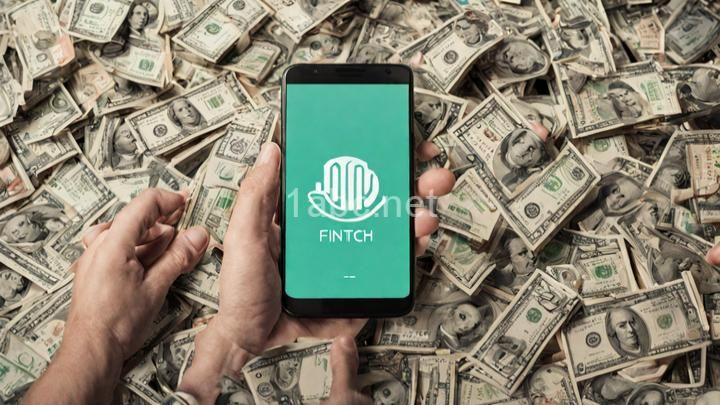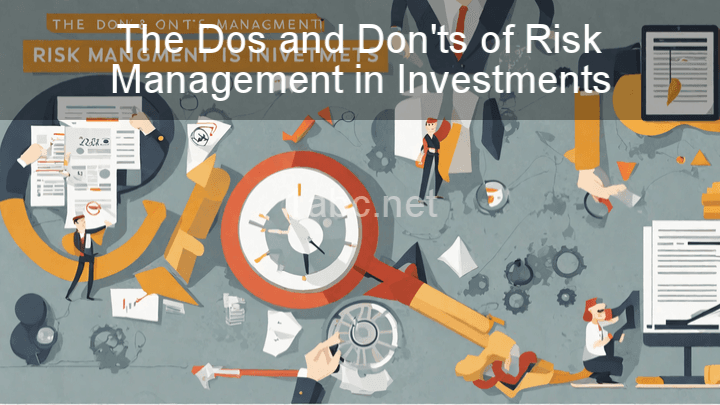Understanding Different Types of Debt and How to Tackle Each

Introduction:
Debt - it's a word that can bring up a range of emotions, from anxiety to frustration. But understanding different types of debt and how to tackle them can empower you to take control of your financial situation. In this blog post, we'll break down the various types of debt and provide practical tips on how to manage them effectively. So grab a cup of coffee, get comfortable, and let's dive in!
I. What is Debt?
Debt, in its simplest terms, is money that you owe to someone else. It's a result of borrowing money and incurring a repayment obligation. People accumulate debt for various reasons, such as financing education, purchasing a home, or dealing with unexpected emergencies. Understanding the nature of debt is crucial in order to make informed financial decisions and avoid unnecessary pitfalls.
II. Types of Debt:
A. Credit Card Debt:
Credit cards can be both a convenient tool and a potential trap. They provide a line of credit that allows you to make purchases and pay them off over time. However, if not managed wisely, credit card debt can quickly spiral out of control. The high-interest rates and minimum payments associated with credit cards can make it challenging to pay off the balance.
To effectively manage credit card debt, it's important to be mindful of your spending habits and prioritize paying off the highest interest rate debts first. Consider creating a budget, tracking your expenses, and exploring options like balance transfers or debt consolidation to lower your interest rates and simplify your payments.
B. Student Loan Debt:
For many individuals, pursuing higher education is an investment in their future. Student loans play a significant role in making this dream a reality. There are two main types of student loans - federal and private. Federal loans often come with more flexible repayment options and potential loan forgiveness programs, while private loans may offer different terms and interest rates.
Managing student loan debt starts with understanding your repayment options. Explore programs like income-driven repayment plans, loan forgiveness for public service, or refinancing to potentially lower your interest rates. It's important to stay informed about your rights and responsibilities as a borrower, and to communicate with your loan servicer if you encounter any difficulties.
C. Mortgage Debt:
Owning a home is a dream for many, and obtaining a mortgage is a common way to make that dream a reality. When it comes to mortgages, there are two main types to consider: fixed-rate and adjustable-rate. A fixed-rate mortgage offers a stable interest rate throughout the loan term, while an adjustable-rate mortgage may start with a lower rate but can change over time.
Managing mortgage debt involves being proactive in making your payments on time and avoiding foreclosure. Consider creating a budget that includes your mortgage payment, property taxes, and insurance. If you encounter financial difficulties, reach out to your lender to discuss potential solutions, such as loan modification or refinancing.
D. Personal Loan Debt:
Personal loans are a versatile form of borrowing that can be used for a variety of purposes, such as consolidating debt, financing a wedding, or covering unexpected expenses. Unlike credit cards, personal loans typically have a fixed repayment term and interest rate.
To tackle personal loan debt, it's important to prioritize your payments and consider strategies like debt snowball or debt avalanche. The debt snowball method focuses on paying off the smallest debts first, while the debt avalanche method targets the highest-interest debts. Choose the method that aligns with your financial goals and motivates you to stay on track.
III. Tackling Different Types of Debt:
A. Creating a Budget:
Budgeting is a powerful tool that can help you take control of your finances and prioritize debt repayment. Start by tracking your income and expenses, and identify areas where you can cut back or save money. By allocating a portion of your budget towards debt repayment, you'll be actively working towards your goal of becoming debt-free.
B. Snowball Method vs Avalanche Method:
When it comes to prioritizing debt repayment, two popular methods are the snowball method and the avalanche method. The snowball method involves paying off the smallest debts first, regardless of interest rates, to gain momentum and motivation. On the other hand, the avalanche method focuses on tackling the highest-interest debts first to save money on interest over time.
Both methods have their merits, and the best approach depends on your personal financial situation and psychological factors. Choose the method that resonates with you and keeps you motivated on your debt-free journey.
C. Seeking Professional Help:
If you're feeling overwhelmed or unsure about how to tackle your debt, don't hesitate to seek professional help. Credit counseling agencies and financial advisors can provide guidance and resources to assist you in managing your debt effectively. Be sure to research and choose reputable professionals who have your best interests in mind.
IV. Staying Motivated:
Dealing with debt can be emotionally challenging, but it's important to stay motivated and focused on your goal of becoming debt-free. Surround yourself with a supportive network of friends and family who understand your journey. Celebrate small wins along the way and remind yourself of the positive impact that being debt-free will have on your life.
Conclusion:
Understanding different types of debt is the first step towards taking control of your financial situation. Whether it's credit card debt, student loan debt, mortgage debt, or personal loan debt, there are strategies and resources available to help you tackle each type effectively. By creating a budget, prioritizing debt repayment, and seeking professional help when needed, you can pave the way towards financial freedom. Remember, it's never too late to start your journey towards a debt-free life. So take that first step today and embrace the possibilities that await you!
FREQUENTLY ASKED QUESTIONS
What are the different types of debt?
When it comes to debt, there are several different types that individuals can find themselves in. Here are some of the most common types of debt:
-
Credit Card Debt: This refers to money owed on credit cards, typically accrued through purchases or cash advances. It often carries high interest rates, making it important to manage and pay off regularly.
-
Student Loan Debt: This type of debt is specific to education expenses and is usually taken out to fund college or higher education. Student loans can come from the government or private lenders and must be repaid after graduation.
-
Mortgage Debt: This type of debt is associated with purchasing a home. A mortgage is a loan from a bank or financial institution that allows individuals to buy property and pay it off over a set period of time.
-
Auto Loan Debt: When individuals finance the purchase of a vehicle, they take on auto loan debt. This debt is paid off in monthly installments over a specific loan term.
-
Personal Loan Debt: Personal loans are borrowed funds that can be used for various purposes, such as consolidating debt or funding major expenses. They are typically unsecured loans that require regular repayment.
-
Medical Debt: Medical expenses can quickly add up, and individuals may find themselves in debt due to medical bills. This type of debt often arises from unexpected medical emergencies or procedures.
-
Payday Loan Debt: Payday loans are short-term, high-interest loans that are usually due by the borrower's next payday. They are often used by individuals who need immediate cash but can lead to a cycle of debt if not managed carefully.
It's important to note that managing and reducing debt is crucial for financial well-being. Understanding the different types of debt can help individuals make informed decisions and take proactive steps towards financial stability.
How can I effectively manage my debt?
Managing debt effectively can be a challenging task, but with careful planning and discipline, it is definitely achievable. Here are some steps you can take to effectively manage your debt:
-
Assess your current financial situation: Start by gathering all your financial information, such as your outstanding debts, interest rates, monthly payments, and income. This will give you a clear picture of where you stand and help you prioritize your debts.
-
Create a budget: Develop a realistic budget that takes into account your income, necessary expenses, and debt payments. This will help you allocate your money wisely and ensure that you have enough to cover your debt obligations.
-
Prioritize your debts: Identify which debts have the highest interest rates or the largest outstanding balances. It's generally recommended to focus on paying off high-interest debts first, as they can accumulate rapidly and become a burden on your finances.
-
Negotiate with creditors: If you're struggling to make your debt payments, consider reaching out to your creditors to discuss possible options. They may be willing to negotiate a lower interest rate, offer a repayment plan, or even settle for a reduced amount. Open communication can go a long way in finding a mutually beneficial solution.
-
Consolidate your debts: If you have multiple debts with different interest rates, consolidating them into a single loan with a lower interest rate can simplify your payments and potentially save you money. However, be cautious and thoroughly research your options before proceeding with consolidation.
-
Cut back on expenses: Look for ways to trim your expenses and free up more money to put towards debt repayment. This could involve reducing discretionary spending, finding cheaper alternatives, or even temporarily downsizing your lifestyle. Every penny saved can make a difference.
-
Seek professional advice: If you're overwhelmed or unsure about how to manage your debt, consider seeking advice from a financial counselor or debt management agency. They can provide guidance tailored to your specific situation and help you develop a personalized debt management plan.
Remember, managing debt effectively requires patience, discipline, and consistency. It may take time, but with determination and a solid plan in place, you can regain control of your finances and work towards a debt-free future.
How can I tackle credit card debt?
If you're looking to tackle credit card debt, there are a few strategies you can consider. Here are some steps you can take:
-
Evaluate your debt: Start by assessing the amount of credit card debt you have. Make a list of all your credit cards, their balances, and the interest rates.
-
Create a budget: Develop a budget that allows you to allocate funds towards paying off your credit card debt. Identify areas where you can cut back on expenses to free up more money for debt repayment.
-
Prioritize your payments: Determine which credit card has the highest interest rate and focus on paying off that card first. While making minimum payments on your other cards, allocate as much money as possible towards the card with the highest interest rate.
-
Consider balance transfers: If you have a credit card with a high-interest rate, you may want to explore the option of transferring the balance to a card with a lower interest rate. Be sure to read the terms and conditions and consider any balance transfer fees before making a decision.
-
Negotiate with creditors: Reach out to your credit card companies to see if they are willing to negotiate lower interest rates or develop a repayment plan. Explain your situation and discuss possible solutions that could help you pay off your debt more effectively.
-
Cut back on credit card usage: It's important to avoid adding to your credit card debt while you're working on paying it off. Limit your credit card usage to emergencies or essential purchases only, and try to pay for expenses with cash or a debit card whenever possible.
-
Seek professional help if needed: If you're feeling overwhelmed or struggling to make progress on your own, consider reaching out to a credit counseling agency. They can provide guidance, help you develop a debt management plan, and negotiate with your creditors on your behalf.
Remember, tackling credit card debt takes time and commitment. Stay focused on your goal, stay consistent with your payments, and be patient with yourself. With determination and a solid plan, you can regain control of your finances and become debt-free.
What strategies can I use to pay off student loans?
Paying off student loans can seem overwhelming, but with the right strategies, you can make progress towards becoming debt-free. Here are some effective strategies to consider:
-
Create a Budget: Start by assessing your income and expenses to create a realistic budget. Allocate a portion of your income towards loan payments while ensuring you have enough for other necessities.
-
Prioritize High-Interest Loans: If you have multiple student loans, focus on paying off the ones with the highest interest rates first. This will save you money in the long run.
-
Make Extra Payments: Whenever possible, make extra payments towards your student loans. Even small additional amounts can make a significant impact over time, helping you pay off your debt faster.
-
Consider Loan Consolidation or Refinancing: Consolidating multiple loans into one or refinancing your loans can potentially lower your interest rate, making your monthly payments more manageable.
-
Explore Loan Forgiveness Programs: Depending on your profession or circumstances, you may be eligible for loan forgiveness programs. Research and see if you qualify for any of these programs.
-
Find Additional Sources of Income: Consider taking on a side gig or freelance work to earn extra income. Apply this additional income directly towards your student loan payments.
-
Seek Employer Assistance: Some employers offer student loan repayment assistance as part of their benefits package. Check if your employer provides this benefit and take advantage of it.
-
Avoid Default: If you're struggling to make payments, reach out to your loan servicer to explore options such as income-driven repayment plans or deferment. Defaulting on your loans can have serious consequences, so it's important to stay proactive.
Remember, paying off student loans takes time and dedication. Stay focused, follow your chosen strategy, and celebrate your progress along the way. You've got this!

